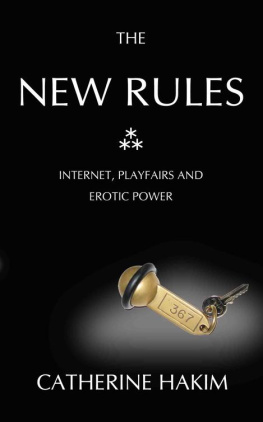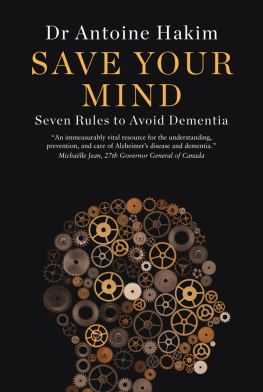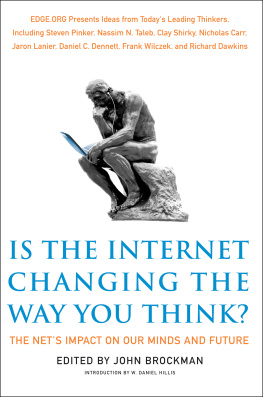British couples should take their cue from the French, who she claims are happier and have more stable home lives because of a permissive and philosophical approach to adultery.
Daily Telegraph
The grown up way to love.
Sunday Times
It is time for us to get real.
Observer
Facebook, other social networking sites, internet dating websites they have all changed the way we look at people, profiles, relationships. Websites for married dating are one element in the wider trend. If the pill made pre-marital sex among young people a lot easier, the internet facilitates playfairs among older married people.
I expected people on these websites to be more French in their attitudes, more Mediterranean, or at least European. And so it proved. As more people travel abroad on holiday or for business, English people are adopting more cosmopolitan lifestyles. There is a learning curve of course. Women are surprised by the freedom.
In the Anglo-Saxon world divorce is often the knee-jerk response to affairs, if discovered. This leads to serial monogamy. In France and many other Mediterranean countries, affairs are simply ignored: playfairs, these dalliances are too ephemeral and fugitive to count for much. Marriages are, as a consequence, longer-lasting in these countries.
I know too many people who got divorced, hastily, for all the wrong reasons. Typically, because one of them had a fling with someone they knew, or just a fling with a stranger on a business trip, and the other party bridles up in rage and walks out of the relationship. From the French perspective, this is insane. You choose your spouse for lots of good reasons, and invest years in developing a life together. How can one small night cancel out such a huge mountain of good experiences?
I have known Michael and Suzanne ever since we were all at university together. He is tall, dark and handsome, and immensely successful in the City. She is vivacious, attractive, warm, and has a good academic job. One day, she turns up in tears, enraged at coming across evidence that suggests her husband might be having an affair with someone he met in one of the cities where he stayed regularly on business trips. She wants to throw him out, get a divorce, her life is in ruins. After she has calmed down, I suggest the best way of dealing with it is simply to let it go. Affairs blow over, never last long, it will end of its own accord, I say. Again she is enraged. How can you make light of something so serious? But how can you throw away a good marriage just when you have had a new baby?, I counter. Eventually, a bigger picture emerges. Suzanne pretty well lost interest in Michael after the baby was born. Her baby was so beautiful, smiling, calm and easy, perfect in every way. He was a loving child, and she basked in the unconditional adoration of an infant who knows only its mother. The baby was soft, sensual, tactile, even erotic. She had fallen in love in an entirely new way. She needed no-one else, and was lucky enough to have a full years maternity leave to fully enjoy the new relationship. Suzanne began to see that she had unwittingly played a part in Michaels dalliance. Be nice to him, instead of nasty, I suggested. Let him share the baby with you. He will fall in love with it too, if you allow him in. He needs to feel welcome when he comes home, not an intruder on a private love affair. Reluctantly, Suzanne agreed to try my strategy, and to ignore the evidence of his affair, which was equivocal anyway. To her surprise, Michael responded with visible delight, overjoyed at being offered his place, a role as father and husband again.
All went well for some years. Then Michael invited me to lunch at a swanky City restaurant. After chatting about nothing in particular for a while, he said he knew Suzanne was having an affair with a student, a boy of 21, a child, a nobody. The insult was intolerable. He would leave her, despite the adorable son and daughter. He was not wanted at home anyway, he now realised. It was only his money that mattered. Dont be silly, I said, she is not serious about the boy. She believes you had an affair with someone much younger years ago, and this is her tit-for-tat affair. Suzanne needs to prove to herself that she can do it just as well as you could, that she too is attractive and desirable. It is a way of rebalancing things psychologically, because she feels so dependent on you. She will soon get bored with the boy, in fact this has already started. The way to deal with it is to let it go. How can you trivialise her infidelity, Michael insisted, after all I have done for my family. That is the point, I respond. You are the rock on which the family rests. Suzanne knows this, which was why she was so distraught when she knew you were having an affair. And so he calmed down, they stayed together, and are very happy they did so. Years later they do not really recall those emotionally turbulent times.
In contrast, my friend Amanda was determined to divorce her husband when he came home one day and confessed to a fling with a beautiful girl within their circle of friends. They were both young at the time, had no children, and she felt she wanted to start again with someone she could trust. The insult was too great to bear. She had married her first ever boyfriend and childhood sweetheart, so they had been together for ten years and not just the two years of marriage. Hours of persuasion, to think again, to not throw everything away for a one-off incident, had no effect. The divorce was speedy and uncontested. Amanda moved to another city, made a fresh start, dated loads of men, but has never remarried, and never had the children she so desperately wanted. She is attractive, well-dressed, intelligent, and professionally successful. But somehow she never shook off her bitterness over the infidelity, became far more cautious of men, developed a rigid and unbending self-righteousness that could be discouraging even for friends. She was unable to forgive and forget, which is crucial in sustaining any long-term relationship. Needless to say, her husband remarried within a few years, had a big family, and is very happy.
From my French perspective, Amandas response to a single incident seems worse than excessive. Using a sledgehammer to crack a nut destroyed everything. The unforgiving Puritan Anglo-Saxon response to affairs results in a much higher incidence of divorce, with all the misery and trauma that entails for partners and for any children. Men find it much easier to remarry than women, especially if the wife retains responsibility for any children. I know lots of attractive divorced women who never remarried, as they assumed they would. The French perspective on affairs is more philosophical, more tolerant. They are not actively recommended, but they are not prohibited either. They are accepted as something that may happen in a long-term marriage, precisely because it is a long-term relationship, with patches of boredom or friction. As Suzannes story shows, there is usually something that prompts an affair, even if it is not immediately obvious to outsiders, and is not necessarily a sign of problems in the relationship.
I am not sure where I picked up the relaxed French approach to affairs. Maybe from reading too many novels by Colette. Certainly not from my French education. We were taught to admire Napoleon as the first true European. But the teachers had nothing to say about love, sex, marriage or affairs. But we became aware of the ubiquity of official mistresses as well as official wives in the French courts. Madame de Pompadour was the favourite, as she seemed so lively - and she had fabulous dresses! Mistresses and lovers were obviously a luxury, one of lifes greatest pleasures, but maybe a necessity for kings and princes whose daily lives were controlled by protocol, formality and obligations. I have always been baffled by the sour and rigid English view of affairs. An existentialist, hedonistic, laissez-faire attitude seems to work better, in practice. None of us are perfect, so there is little point in demanding perfection from others. Another way of looking at such problems comes from an odd source. The message in the Ministry of War propaganda poster from the Second World War (that can still be bought from the Victoria and Albert Museum in London) is Keep calm and carry on on a blood red background!








